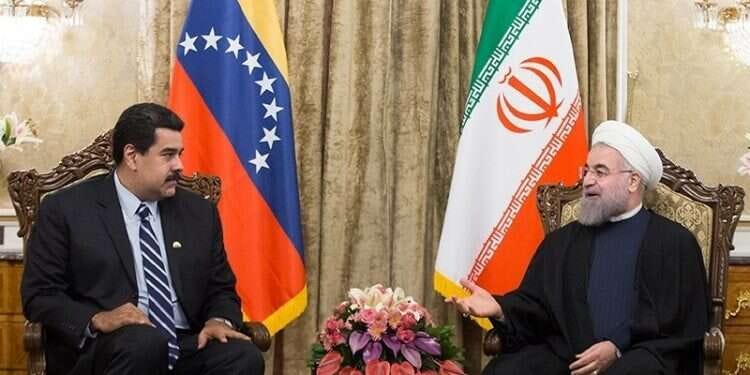Great Power Competition & Instability in the Western Hemisphere
After a generation of strategic inaction in the Western Hemisphere, we are paying the price.
Since the end of the Cold War in 1992, the U.S. has experienced a prolonged and significant case of “strategic drift” with regards to Latin America (as we have elsewhere across the world). Our most high-level engagement has primarily concerned counter-drug operations along with countering the flow of irregular migration through the region. For most of the 21st century, this benign strategic drift was acceptable as we were distracted by the Global War on Terror in Eurasia. Now, events have rapidly conspired over the last decade that necessitate a renewed focus on the Western Hemisphere.
Over the last decade we have seen an alarming, dual trend of increasing external great power competition and increased internal instability. Since the early 2000s, Communist China has placed itself as the prime economic partner for most of Latin America. These serious economic gains have also had broader geo-strategic implications, especially in the realm of space, where new Chinese-built stations are populating South America. Communist China is also leveraging its new strategic heft to challenge us in the High North and Antarctica. The left-wing dictatorship in Nicaragua has re-kindled Cold War-era ties to Russia while Iran’s interest and strategic partnership with the socialist dictatorship running Venezuela has deepened.
That partnership has no doubt contributed to the alarming expansion of Hezbollah in the Western Hemisphere. Foreign terrorist groups are not only taking advantage of great power competition in the Western Hemisphere but also enabling greater regional instability. Almost 20 years later, the Mexican Drug War continues to destabilize that country with no end in sight. Bolivia was convulsed in 2020 when the longtime socialist president refused to leave office, and Brazil suffered the same challenges in 2022. Now, in 2024, perennially unstable Haiti is not only on the verge of collapse but is also being transformed into a country ruled by vicious criminal gangs.
Taken together, these alarming external and internal regional trends strike at the very heart of strategic security for the U.S. in an unprecedented fashion. Foreign terrorist groups are already taking advantage of our border security crisis. A steady flow of Chinese chemicals to Mexico is dramatically exacerbating the fentanyl crisis, devastating American communities. And the great power machinations of Communist China, Russia, and Iran are putting serious strategic competitors on our doorstep for the first time in well over a century.
Help us to continue to provide a platform for writers like Jacob Wiencek.
Serious and coordinated action at all levels is needed immediately, but I worry conservatives/Republicans are spiking the crisis for grossly inappropriate political reasons. House Speaker Mike Johnson should reverse his totally unserious stance obstructing passage of the Senate’s bipartisan border security deal. In this year’s and the next’s appropriation cycles, Congress should finally allocate proper resources to U.S. Southern Command, which has responsibility for almost all of Latin America. Instead of further politicizing and weakening the FBI and ATF through misguided budget cuts, Congressional Republicans should give these agencies and others the resources they need to tackle the scourge of transnational criminal gangs. Our Coast Guard badly needs more resources too, particularly in our beleaguered and much-delayed efforts to build new Polar icebreakers.
Finally, we need to accompany these domestic and law enforcement actions with serious, multilateral engagement with our hemispheric partners. The Biden-Harris administration has been lackluster in pursuing serious economic engagement with the region despite the 2022 unveiling of the American Partnership for Economic Prosperity (APEP). Conservatives should be pushing for more robust engagement that offers tangible economic benefits to our southern and northern partners. Immigration reform that created easier pathways for legal residence and work would ease the strains of irregular migration and our own domestic political and law enforcement institutions. Lastly, the Senate should immediately finalize the passage of the Ukraine, Taiwan, and Israel aid bills that will help put our strategic competitors on the back foot in the Western Hemisphere by bolstering their opponents in the Eastern Hemisphere.
Unfortunately, there is a particular lack of seriousness on the American right. A growing neo-isolationism is leading conservatives down an erroneous and dangerous path to abandon serious leadership and international engagement. After a generation of strategic inaction in the Western Hemisphere, we are paying the price. State breakdown among our neighbors, increased great power competition, and the evolving threat of violent nonstate actors are threatening our southern border. We still have the capacity to act decisively and make a real difference. Do conservatives have the maturity and vision to act?
Jacob Wiencek is Chairman of Hawaii Young Republicans. The views expressed are strictly his own. @jacob_wiencek





Foreign policy drift. Great piece. Ever since the reversals in Iraq some 20 years ago, the foreign policy of the United States has been primarily reactionary.
What is the role of the US abroad?
Who are our key allies?
Where do we see NATO five years from now?
What is our role in the Pacific? In the Sub Continent?
Who are our geo political foes and what is our approach to them singularly and collectively?
Obama either did not care, or pursued a singular treaty with Iran. The next two presidents either did not care, did not have the intellectual capacity to care, or simply lacked the energy to pursue these answers.